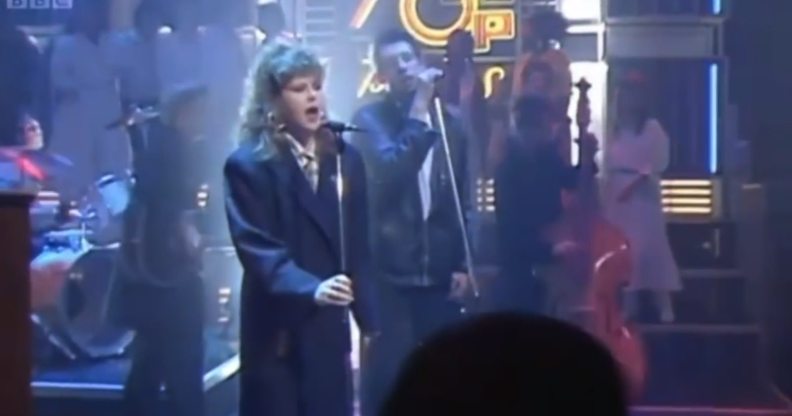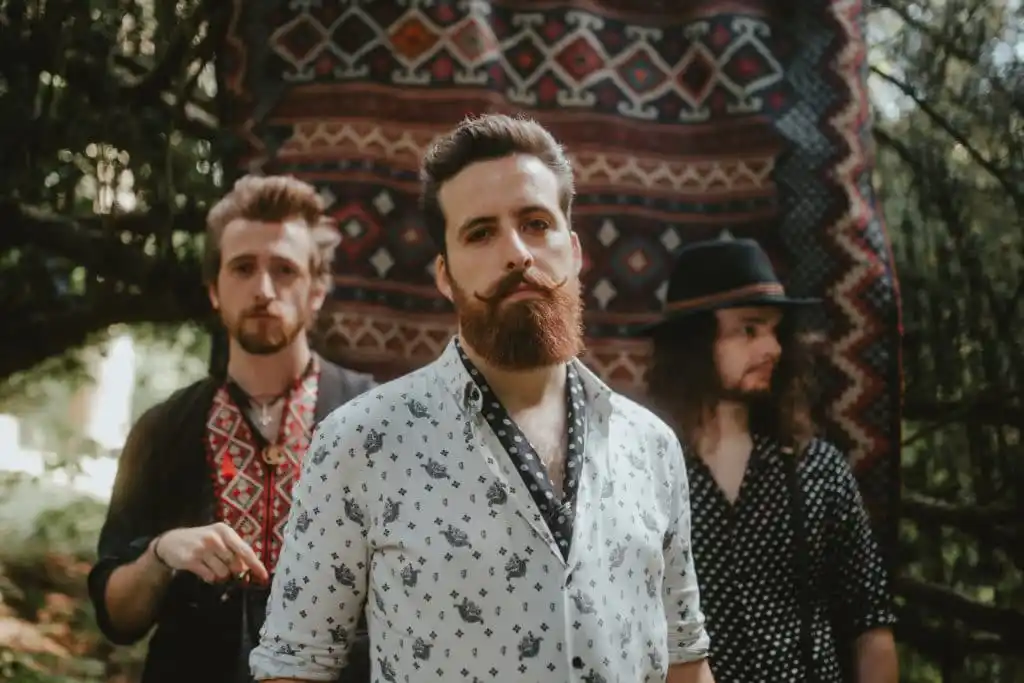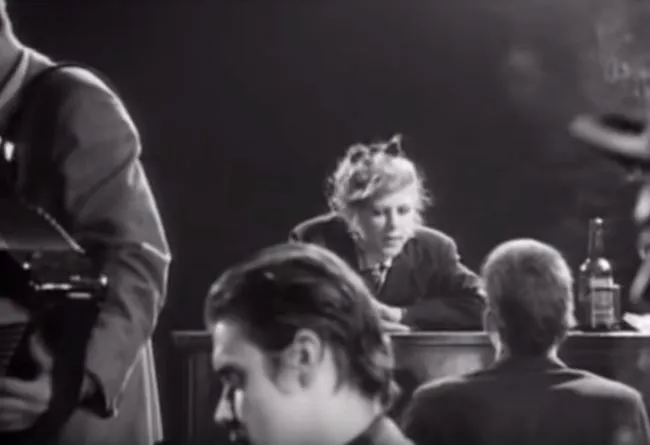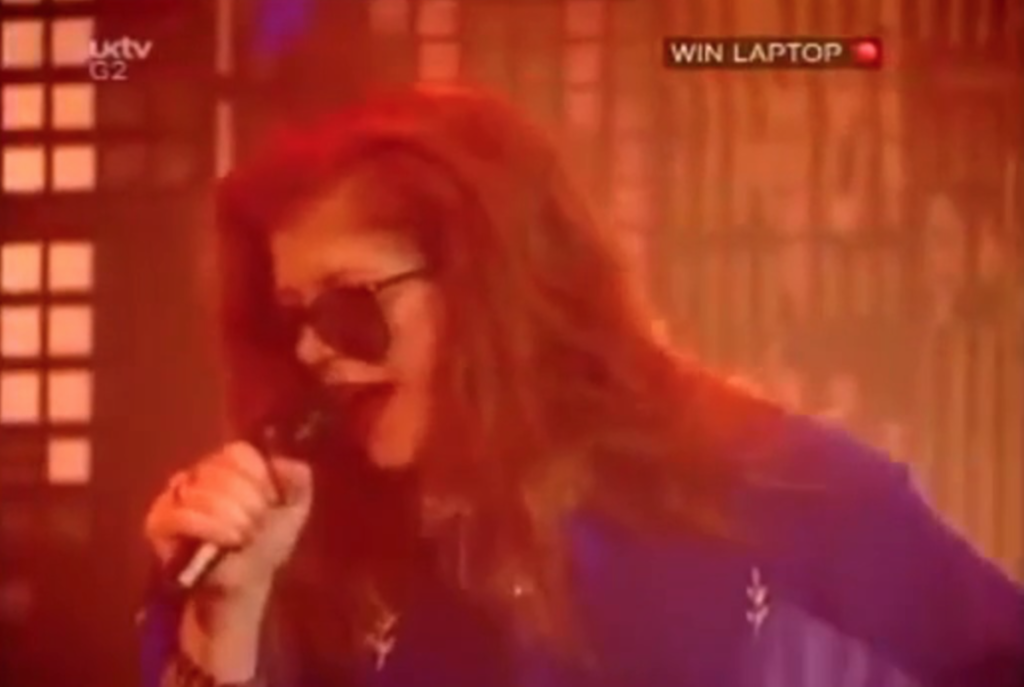Lyrics to Fairytale of New York are not a serious issue for any queer person I know

Nik Jovčić-Sas is a professional folk violinist and LGBT+ activist, based in Bath, England, who is frontman of the band Ninotchka. He tells PinkNews how the “controversy” that engulfs “Fairytale of New York” each year is not one that LGBT+ necessarily want.
The days are getting shorter, the nights are getting longer, it’s time for every newspaper in Britain to reheat the tired debate around “Fairytale of New York” for the sweet precious clickbait they so desperately crave.
Each year I want to write a long angry Facebook status for my friends to endure about the media narrative around this song and alleged calls by the LGBT+ community to censor it, but normally I coax myself off the cliff edge remembering that I have more important things to do with my time.
However, seeing as I’m trapped alone in my flat, I have decided this year to share with you all the full force of my festive fairy fury.
While so much as already been written, I feel I am the ultimate authority on this subject as: a) A musician who regularly performs this song at Christmas and b) As someone who is extremely gay.
For those of you who have been living in a pitch-black squalid culture-less cave and have not heard of this controversy, I will explain.
When it comes to our priorities, Fairytale of New York is at the bottom of the list
Between mid-November and the first week of January each year, Britain decides to listen only to a playlist of around 20 songs, and within that set of accursed tunes there is only one good song: “Fairytale of New York.”
Unlike the other saccharine ear vomit, this song by the Pogues featuring the late Kirsty MacColl is relatable and human – disappointment, hatred, anger, feeling cold and being bored at listening to an old person talking.
While sticking up a punk middle-finger to the Yuletide status quo, it also acknowledges something few other Christmas songs address: the bleak reality that the festive period is harsh, lonely and unforgiving for those of us with troubled lives and toxic relationships.
In all my gay years, I have never met a single LGBT+ person who feels passionately that this song should be banned, or who feels ‘offended’ each time they hear it.
From the second verse through to the bridge and final chorus, the song’s clear message is that while none of us are perfect, and our dreams do not always come true, our love for one another in difficult times lights up the bleakest of winters.
It is an emotionally potent message that has endeared it to the hearts of many, which is consequently why the concept of it being policed by political correctness is so infuriating.
Now, if the newspapers are to be believed, the playing of “Fairytale of New York” is a huge issue for the LGBT+ community in Britain – this story receives more press coverage than virtually any other LGBT+ talking point over the course of a regular year (that is, one where a beloved children’s author doesn’t decide to come out as an ardent transphobe).
But I would like to make it very clear, that this narrative is fake.

Nik Jovčić-Sas (C). (Supplied)
This song is not a serious issue for any queer person I know. In all my gay years, I have never met a single LGBT+ person who feels passionately that this song should be banned, or who feels “offended” each time they hear it.
Even if there are those who take exception to the song, this “issue” is grossly overstated for clickbait and hyped particularly by right-wing media outlets to slander LGBT+ rights activism as ridiculous and over-sensitive.
I find it comical that people genuinely believe that the queer citizens of this fair isle mince in fear through the Christmas period, terrified that we may be unintentionally offended by a supermarket tannoy playing garbage music.
I can assure you that we are a much tougher bunch than that.
That being said, the ardent reactionary response by many to this manufactured story – seeing people fighting for their right to scream the word “faggot” whenever and wherever they please – reveals that we are in need of a little bit of a cultural discussion as a nation around the use of the word in this song.
LGBT+ practically invented offence
So first things first, we need to dispel a myth: no LGBT+ person seriously cares about being offended.
Despite what the BBC believes, we love offence. We gorge straight television where people fight and throw outrageous insults accompanied by glasses of pinot grigio at one another – and queer produced media is even more offensive.
If you are straight and don’t believe me, I suggest you watch five episodes of the popular YouTube series UNHhh with drag queens Katya and Trixie Mattel.
There is no subject or figure that is beyond reproach: sexual perversion and controversial statements abound, and in the grand scheme of offensive queer comedy and performance, it is very tame.
If you want something stronger, try some John Waters… look, we practically invented offence, darling!
While on the subject of irreverent queer icons, many on social media have drawn comparisons between Cardi B’s hit “WAP” and “Fairytale of New York”. “WAP” could be seen as offensive, in that it is lewd (and subsequently has a great deal of LGBT+ fans) but, as mentioned, offence is not the issue.

Fairytale of New York (YouTube)
Rapping about a “wet ass pussy” may make people squirm, but it’s silly to pretend that this phrase has anywhere near the same gravity as the word “faggot”.
Words have power, and the use of a slur of this nature directed at a marginalised group has serious real-life ramifications.
“Fairytale of New York” came out in 1987, at the height of the AIDs crisis, when it was legal in most countries to fire someone based on their sexual orientation, when same-sex couples had little or no rights, and in the UK it was the same year that Section 28 was introduced that forbid schools and local authorities from “promoting homosexuality”.
It was a time in which being gay – being a faggot – was deeply undesirable in the eyes of society, something to be mocked and sneered at, and as such was a casual day-to-day derogatory remark.
When I was growing up, it was still a very commonly used expression, and indeed part of the fun for many of “Fairytale of New York” coming on in the pub was pointing and screaming at your friend that they’re a faggot – which was seen as extremely amusing (and no doubt is still amusing to knuckle-dragging bridge trolls today).
Despite the use of this word, it’s clear to me that the intention of the Pogues was not to make a deliberately anti-gay song.
The idea that being gay is undesirable has an effect more serious than simply making precious queer folk clutch their pearls at being “offended”.
It creates a world where LGBT+ people are truly seen as lesser, and many of us come to the conclusion that it may be better to be dead than to be gay.
Studies by Stonewall, Mind and the Albert Kennedy Trust in the past five years show that LGBTQ+ individuals in Britain are still statistically much more likely to commit suicide, self-harm, suffer from depression, anxiety, substance abuse, alcoholism and familial rejection, abuse and violence.
Despite the advances we have made in 30 years, it’s wrong to think that queer stigma and homophobia are a problem of the past.
I know many LGBT+ readers of this piece will relate to the fact that, while we may have many friends like us who are full of strength and pride – so many of them are also tortured with internal struggles, and I can heartbreakingly name a few queer friends of my own who are no longer with us.
Knowing all of that, why would any decent person with a heart want so desperately to say the word faggot? It might not be a problem for you, but that does not mean it is not a problem.
The Pogues had no intention of inflaming homophobia with ‘Fairytale of New York’
So if we are willing to accept that stigma around sexual orientation is still a serious issue in Britain – can we still play “Fairytale of New York” in good conscious? I would argue, yes.
Despite the use of this word, it’s clear to me that the intention of the Pogues was not to make a deliberately anti-gay song.
Though Shane McGowan has never denied the homophobic connotations of the word, in a 2018 interview to Virgin Media he stated in reference to the words of the female character:
“Her dialogue is as accurate as I could make it,” he said, “but she is not intended to offend!
“She is just supposed to be an authentic character and not all characters in songs and stories are angels or even decent and respectable, sometimes characters in songs and stories have to be evil or nasty to tell the story effectively.”
It was a common homophobic insult of the time, but the sentiment of the word is not essential to the song’s meaning – in fact, even a few short years after the song came out, Kirsty MacColl who sung the line started replacing “you cheap lousy faggot” with “you’re cheap and you’re haggard”.

Singer Kirsty MacColl, who sang alongside The Pogues for a ‘Fairytale of New York’ cover, once changed a controversial lyric live on Top of the Pops in 1992. (Screenshot via YouTube)
McGowan also added in the 2018 interview that he had no issue with the lyric being bleeped or replaced – which they have since reaffirmed in 2020.
While obviously, it’s not the perfect solution, I think there’s a strong case to consider the song as not being intrinsically anti-LGBT+ in nature.
Therefore I would like to propose the following judgment: that playing “Fairytale of New York” is fine, as long as we can acknowledge this one problematic aspect.
It is a single regrettable word in a song that is otherwise full of charm and true gritty beauty that many relate to. Censored or uncensored, I hope I hear it for many Christmases to come, and I shall certainly keep performing it.
Before I go however I would like to add, contemporary covers of the song are a different ballgame entirely.
For all the reasons listed above, the use of the word faggot as an insult has no place in the modern world.
Additionally, there are good alternative lyrics that do not alter the overall songs meaning in any way, that were also used by the original performing artists.
For those intending to cover the song today there simply isn’t a good excuse to keep this word in, or to put it another way – if you wouldn’t find it acceptable to call someone a “faggot” normally, you don’t then suddenly have carte blanche because you’re singing (I really don’t know what the people from Gavin and Stacey were thinking).
No doubt this debate will be dredged up again and again until the day I die, but here is my full gay rant on the matter, and all that’s left to say is Merry Christmas your arse, I pray God it’s our last.

